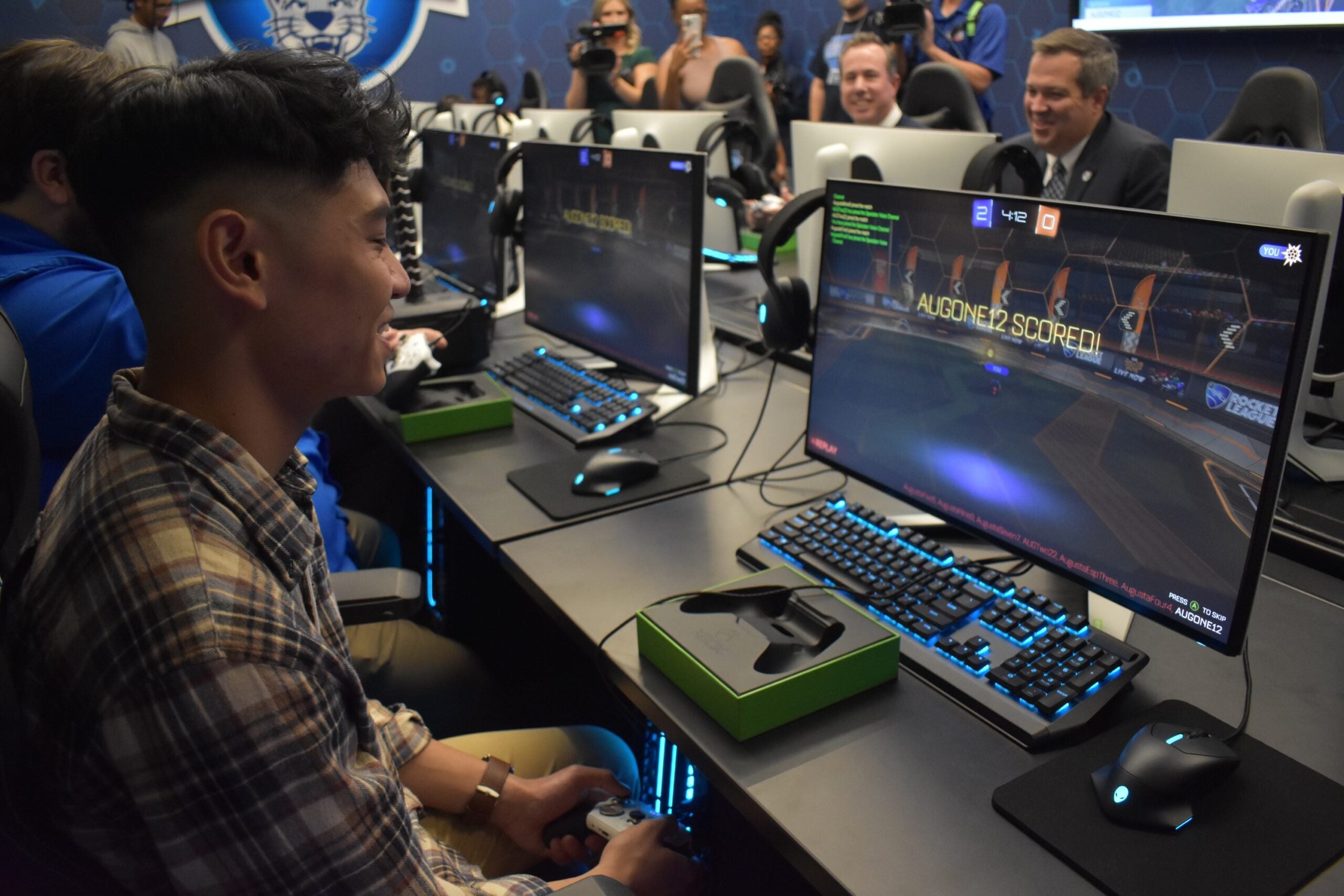Augusta University students, officials and faculty celebrated the grand opening of a new competition arena within the Georgia Cyber Innovation and Training Center on Monday evening, Oct. 23.
With over 600 colleges and universities across the U.S. currently sponsoring an esports team, Augusta University Jaguars, founding members of an esports team in 2018 in the Peach Belt Conference, have joined the online bandwagon with a state-of-the-art gaming arena.
The arena features 16 Dell Alienware computers, headphones and monitors, and will allow the university’s newly added varsity team to compete in the NACE Starleague – the largest collegiate esports league in North America.
As the Jaguars have recently finished their inaugural Rocket League season undefeated in the Peach Belt Conference against various colleges, including Florida State University, they will soon compete in the Peach Belt Championship.
Costing roughly $127,000, the arena will allow students to connect and play side-by-side as a team, according to Rocket League coach and founding student Jordan Moratin.
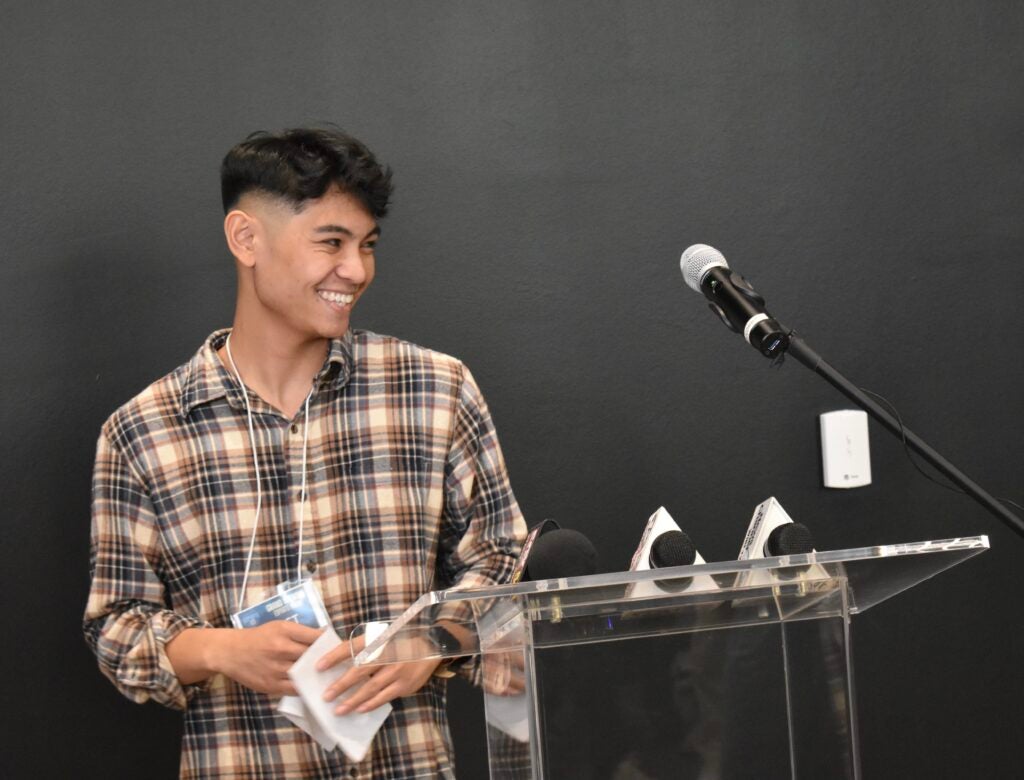
“I envisioned a space where students like us could not only embrace their love for competitive gaming, but also find camaraderie and support in like-minded individuals,” he said. “I wanted to provide students at this university an opportunity to represent our school in aspects other than athletics, and give it a platform for students to potentially receive scholarships in a fun and competitive way.”
Envisioning inclusivity, where skills and teamwork could be honed, and friendships would be forged, Moratin said he wanted to help implement a student-led organization that showcased the hidden talents of gamers. Pitching the idea to professors and AU’s Student Engagement Department, Moratin quickly created an online chat for students to discuss their avid interest in joining an esports team.
“I am awed by how far we’ve come,” he said. “What was once a simple idea has evolved into an esports program that currently rivals the high caliber in games such as Rocket League, Valoranta and more to come soon…we’ve attracted talented players, dedicated coaches and faculty, and passionate supporters who believe in the potential of this platform.”
To university Provost and Executive Vice President Neil MacKinnon, the new gaming facilities will expand the AU’s student engagement and interaction by branching out towards relevant interests and hobbies.
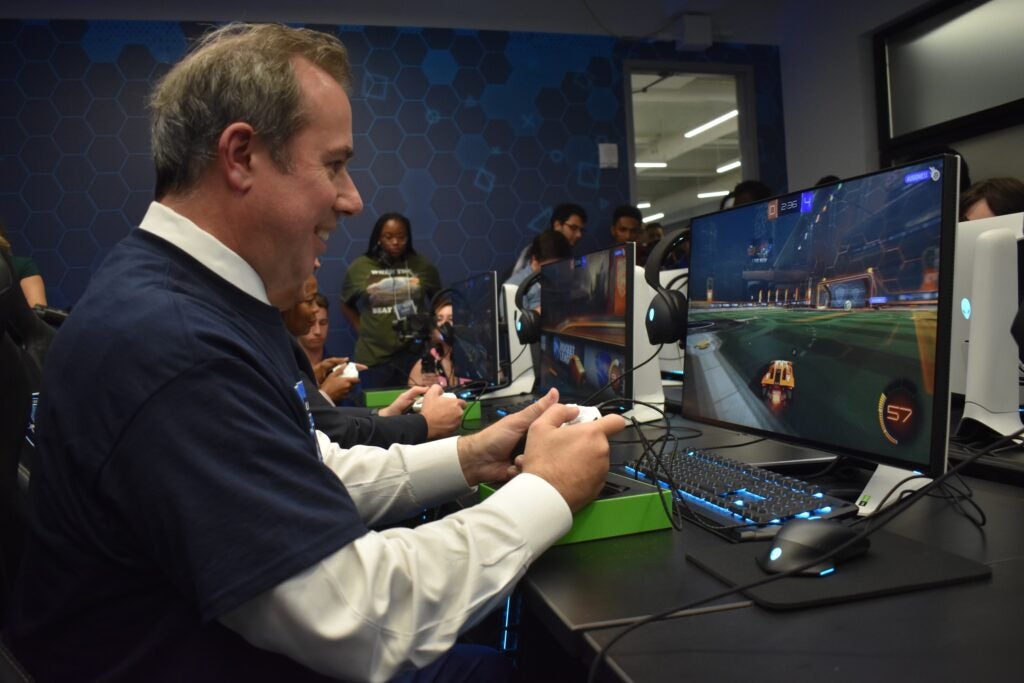
“It’s creating a sense of belonging and a sense of community. For a lot of our students this is part of who they are,” he said.
Associate Vice President for Student Affairs Colin Stewart, who heavily supported Moratin’s ambition in creating the esports team, said he is hopeful of the program’s future growth within the popular electronic industry, hinting that one day a possible esports minor could be offered at AU.
“We’re not the first university to have done this, and we won’t be the last, but I hope we’re one of the best programs in the country,” said Stewart. “We’re just creating a platform to bolster their excitement.”
Most of all, Stewart hopes the growing program will give more students a sense of belonging as each finds a niche community within the university’s many clubs and organizations.
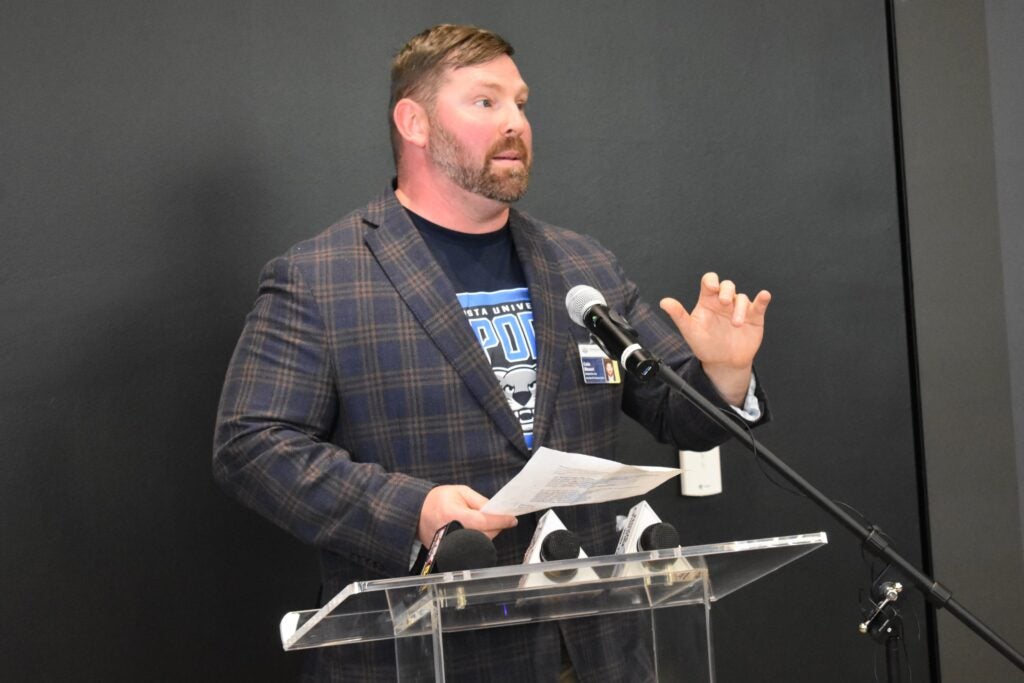
A.B. Osborner, director of AU’s animation program, said esports gives creative students a lifeline for pursuing a career in creating graphics, such as those seen within various video games.
“Most of my students want to work in video games as a career, and our future is tied to esports,” he said. “I often find my students don’t connect with traditional athletics…but if you put a video game in front of them, they are all in. Students love this stuff, and it gives us nerdier folks something to cheer.”
Filling the cyber center with a packed crowd of interested and supportive students, some of whom appeared in character-themed costumes, the grand opening was followed by a short online competition between students and the esports executive cabinet.
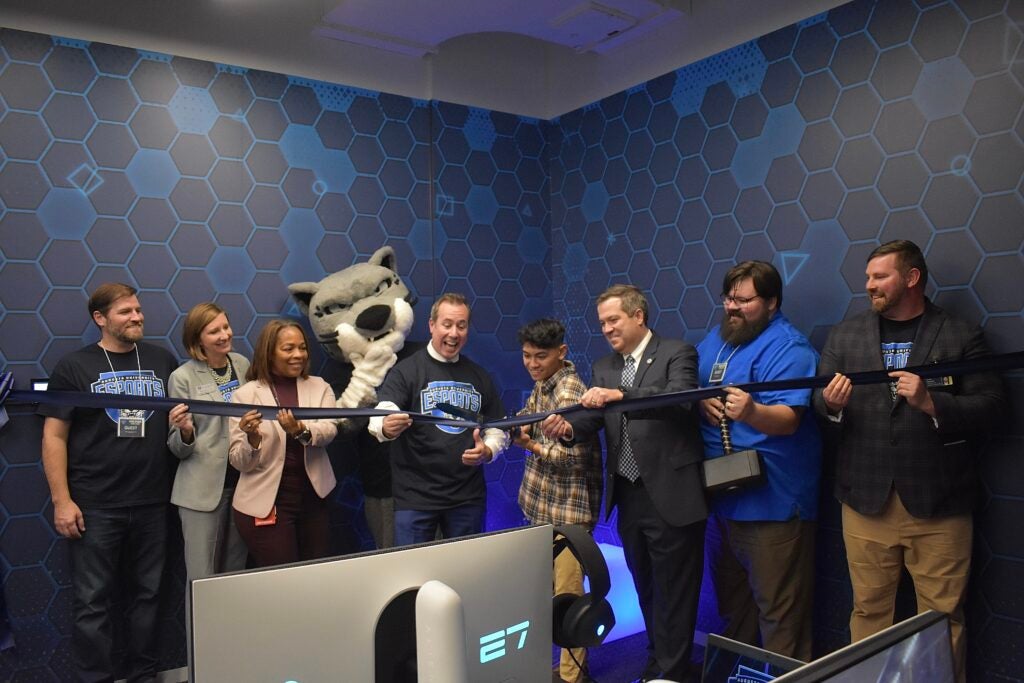
“It’s very much so an interdisciplinary approach. We have everyone from cyber center students to medical physiology students to communication students – all these students are coming together in a student led initiative,” said Joshua LaFavor, staff esports coach. “A lot of the work was done by our students. They have really taken this and just shown such amazing leadership. It makes me proud to be an Augusta alumni.”
Experiencing local outsider interest as well, Moratin said he has already been approached by several high schoolers who plan on enrolling at Augusta University as a result of their interest in the esports team and new arena.
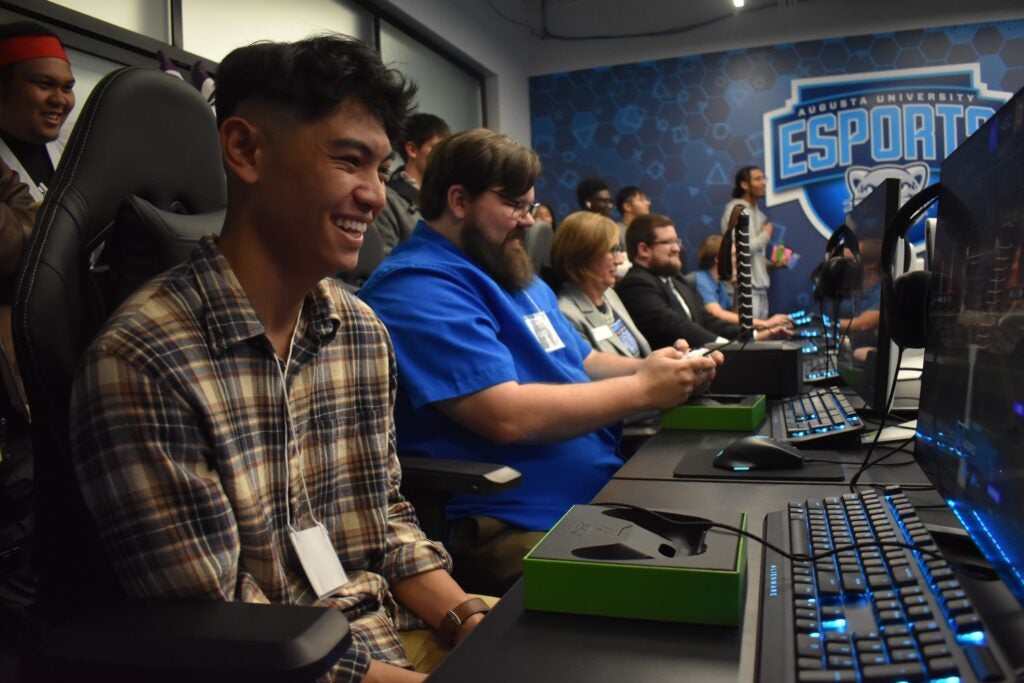
“As we inaugurate the Augusta University esports program, let us remember the journey that brought us here, and let it serve as a reminder that even the most ambitious dreams can be realized with hard work, perseverance and a community that believes in the vision,” said Moratin.
Competing on Saturday, Oct. 28, in Florence, S.C., the esports’ varsity team is hoping to bring another victory home after competing in the Peach Belt Championship against Kennesaw State University.

